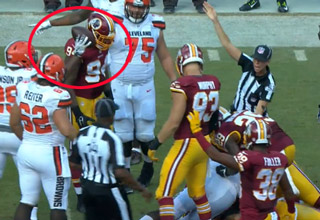The Two Faces of the U.S. Role in World Affairs
dariusdetlef
Published
09/23/2013
The recent actions of the U.S. are full of paradoxes. As proof, consider the striking difference between the way that the international community responded to two key events â the Sept. 11, 2001 terrorist attack in New York City and the current situation in Syria. The first was a tragic event resulting in the deaths of innocent people of different nationalities and eliciting a spontaneous outpouring of sympathy for the American people for their suffering at the hands of delusional Islamic radicals and their umbrella organizations. Many countries, including Russia, openly empathized with the pain the U.S. was experiencing. The international community quickly adopted the fight against terrorism â in all of its forms â as a priority of interstate cooperation, rapidly creating the necessary legal and law enforcement framework needed to battle that social evil. What's more, the United Nations adopted 13 conventions against terrorism in the wake of that tragedy, with the U.S. playing an extremely active role in their development and implementation.Twelve years later, the U.S. â the world's "leading democracy" â is attempting to play the role of global arbiter. However, it has become a "repeat offender" for violations of its legal obligations, including those it holds as a permanent member of the UN Security Council. That, in turn, has undermined the fundamental principles, or mandatory provisions, of world order and accelerated the growth of legal nihilism around the world. A global "peacekeeping corporation" led by Washington and Co. has sought to achieve its goals through force in such countries as Iraq and Libya. It is attempting to institutionalize rules of conduct based on purely geopolitical self-interest that, judging by the hotspots in international relations, are far removed from the goals and principles of the UN.This trend has reached a culmination with Washington's aggressive threats toward Syria and a policy that is not supported by the international community. Such actions destabilize world order, stimulate the arms race and destroy faith in justice and the rule of law. Guided by the principle of "might makes right," U.S. diplomacy casts aside as useless the general principles and norms of international law. It violates and threatens the universally recognized rights of all states






0 Comments